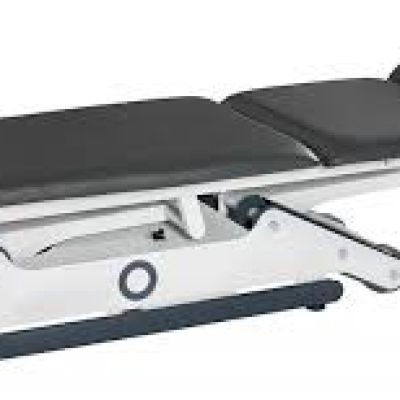In the world of education, the names Auckland Grammar School and private institutions in the UK often come up as benchmarks of academic excellence. However, a deeper analysis reveals that the decision between these educational pathways is more complex than it appears on the surface. For venture capitalists with interests in education technology or international student markets, understanding these nuances is crucial. This article delves into a comparative study of these two educational systems, highlighting the implications for New Zealand's economy and education industry.
Understanding the Educational Landscape
Auckland Grammar School is renowned for its rigorous academic program and has fostered many of New Zealand's leaders. Meanwhile, the UK boasts a plethora of prestigious private schools, including Eton College and Harrow School, known for their comprehensive curricula and historical significance. Both systems have their unique strengths and weaknesses, which can significantly impact students' academic and personal development.
Pros & Cons Evaluation
Pros of Auckland Grammar School
- Cost-Effectiveness: Auckland Grammar provides a high-quality education at a fraction of the cost of UK private schools, making it accessible to a broader demographic.
- Community Integration: As a state school, it fosters a sense of community and inclusivity, reflecting New Zealand's diverse culture.
- Academic Excellence: The school consistently ranks highly in national exams, preparing students effectively for tertiary education.
Cons of Auckland Grammar School
- Resource Limitations: Public funding constraints can limit access to advanced facilities and extracurricular activities compared to private institutions.
- Class Sizes: Larger class sizes may reduce individualized attention, impacting students who require additional support.
Pros of UK Private Schools
- Prestige and Networking: Attending a UK private school often provides networking opportunities with influential alumni and access to global educational pathways.
- Comprehensive Facilities: These schools typically offer extensive resources, including state-of-the-art labs, arts programs, and sports facilities.
- Tailored Education: Smaller class sizes and personalized learning plans cater to individual student needs.
Cons of UK Private Schools
- High Costs: Tuition fees can be prohibitively expensive, potentially limiting accessibility to elite education.
- Cultural Adjustment: International students may face challenges adapting to a different cultural and educational system.
How It Works: Navigating the Educational Choice
The decision between Auckland Grammar and UK private schools often hinges on factors such as cost, educational goals, and personal values. Parents and students need to weigh these factors carefully, considering both short-term academic achievements and long-term career prospects.
Real-World Case Study: Auckland Grammar's Impact
Problem: A New Zealand-based family faced financial constraints yet aimed for top-tier education for their son. Private schooling in the UK was financially out of reach.
Action: They opted for Auckland Grammar, leveraging its strong academic programs and diverse extracurricular opportunities.
Result: The student excelled academically, securing a scholarship to a prestigious university, demonstrating the school's capability to provide a competitive education without the financial burden.
Takeaway: Auckland Grammar can offer comparable outcomes to private institutions in the UK, especially when financial considerations are paramount.
Data-Driven Analysis: New Zealand's Educational Context
According to the New Zealand Ministry of Education, government funding for state schools like Auckland Grammar has increased by 10% over the past five years, allowing for improvements in infrastructure and teaching resources. However, challenges remain in addressing class sizes and individualized attention.
Conversely, a study by the Reserve Bank of New Zealand highlights that household spending on education has risen by 5% annually, indicating a growing willingness among Kiwi families to invest in premium educational experiences, including international schooling.
Common Myths & Mistakes
Myth vs. Reality
Myth: "UK private schools guarantee better career prospects."
Reality: Career success often depends more on individual skills and adaptability than on the educational institution, as evidenced by numerous Auckland Grammar alumni achieving high positions globally.
Myth: "Auckland Grammar lacks diversity and global perspective."
Reality: The school actively promotes cultural exchange programs and has a diverse student body, enriching students' global awareness.
Future Trends & Predictions
By 2030, New Zealand's education sector is expected to integrate more digital and personalized learning experiences, aligning with global trends. This shift will require schools like Auckland Grammar to adopt innovative teaching methods to remain competitive. Additionally, demographic changes may impact enrollment patterns, with an increasing number of international students seeking education in New Zealand.
Conclusion: Final Takeaway & Call to Action
Choosing between Auckland Grammar and private schools in the UK involves a complex set of considerations. While Auckland Grammar offers a cost-effective and high-quality education, UK private schools provide prestige and broad networking opportunities. Ultimately, the decision should align with the student's academic goals and personal circumstances.
Want to explore more about educational opportunities in New Zealand? Join our newsletter for the latest insights and exclusive content on the future of education in the Kiwi context!
People Also Ask (FAQ)
- How does Auckland Grammar compare to UK private schools? Auckland Grammar offers a high-quality, cost-effective education with a focus on community integration, whereas UK private schools emphasize prestige and networking.
- What are the biggest misconceptions about Auckland Grammar? A common myth is that Auckland Grammar lacks global perspective, but the school's diverse programs and cultural initiatives counter this notion.
- What future trends in education should New Zealand be aware of? By 2030, digital and personalized learning are expected to dominate, necessitating innovative teaching methods.
Related Search Queries
- Auckland Grammar School ranking
- UK private school tuition fees
- New Zealand education system
- Best schools in Auckland
- International student trends in New Zealand
- Comparing public and private schools
- Educational technology in New Zealand
- Future of education in New Zealand

































MZHEthel14
7 months ago